By Madronna Holden
I could swear that this honeybee above looked up from her busy work on the oregano this morning to look back at me.
It might be anthropomorphic to assume that there is something such as curiosity among the bees, but I have seen them investigate a novel situation in their hive with the same level of enthusiastic activity as any mammal might express.
When I lift the lid to peer into the hive out of my own curiosity, a number of the bees look back at me– just watching.
At the same time that I don’t want to pretend that I can read their motives from my human perspective, I also don’t want to mechanize these bees. Likely they are attracted by my movement, but I would prefer not to see their watching me as nothing but a reflex action.
During our rainy spring I twice saw different bees pause on their trips into the hive to help another bee into an upright position after she had slid on the wet surface and landed struggling and beached on her back. I don’t know how to explain this in mechanical terms– nor do I want to.
Mythologist James Hillman once remarked that we humans (at least in contemporary Western society) are prone to fear what we can’t control– and since the insects seem the least controllable of all species to us, we declare war on them with pesticides– so obsessed in our self-appointed task of destroying them we overlook the ways we are harming our own children in the process.
Lower Chehalis elder Henry Cultee had a different view of things in his tradition. He used to tell me his people emphasized that if we wanted to live long on the earth–as both individuals and cultures, we should live mindfully of the fact that the “eyes of the world are looking at us”– all the eyes of the earth. And it was what they saw of our actions that led to our long or short survival on this earth.
Many of us in contemporary industrial society don’t look for natural life to be overseeing and judging us– certainly we don’t live accordingly. But it is not a bad thing to aim for. Those who lived sustainably for ten thousand years on this land felt the necessity of upholding a standard of behavior of which more than human life approved.
And the way they treated this valley certainly did better for it than we have done in the last 200 years.
The Chewong of Malaysia traditionally saw it this way: each species has its own way of seeing the world– its own worldview. Many human cultures have used their sense of such diversity as they observed it in other species to teach them how to live full human lives.
In the quest for spirit powers in adolescent initiation rites throughout the world, a human youth sought an alliance with a more than human life whose power and insight would guide their adult life.
Such alliances between the human and more than human world are mysterious– since the lives of these others have more to them than we can explain in human terms alone.
Who am I to say why a white bird came to light in the top of the cedar my mother loved during the last year of her life? That bird followed her movements, sitting by turn in the tree facing her bed and the one looking down at her from the kitchen skylight.
I do know that she cherished and defended those cedars in which that bird alighted. She watched the sun touch their tips each day, signaling the morning she hailed with joy.
She and my father had refused to move into this house unless its builders found a way to construct it without taking down those trees. The builders resisted, wanting the easiest way.
My parents moved into temporary quarters after they sold their old house, waiting out the developers for months until they found a way way to build that house and protect those trees at the same time.
There was substantial history behind my mother’s words,”When I’m gone, don’t let them take the trees.”
Though she was often bedridden during the last years of her life, pulling herself into a wheelchair with great effort to move through the house, I don’t– nor do I know anyone who did– think of her as diminished.
Instead, all those who knew her experienced her the uprightness and power. Her spirit had a comparable rootedness, generosity and wisdom to those ancient trees that she had guarded–and now watched over her.
Our usual idea of transcendence is moving to a world beyond this one. But there is also transcendence of a different kind– transcendence that my mother achieved through the trees that held her spirit upright as her body folded in on itself with crippling arthritis.
My mother also loved butterflies. I have a pin that belonged to her of an enameled red butterfly. I never saw such a butterfly in real life until this past week, when a red butterfly of the same hue appeared at my house twice– once pausing a few inches from me so that I could inspect it at leisure.
I have not seen the like of it in the 35 years I have lived in this house– nor have I so far been able to find anyone who can identify it. (If anyone out there has any ideas, let me know).
I could say that after 35 years of allowing this small patch of ground defined as “my” yard to flourish without poisons, some special things have moved in. That is certainly a gift.
But it takes no explanation at all to enjoy the fact that the color of the butterfly– however it arrived in my yard– matches the color of the butterfly on my mother’s pin.
I want the stories that I know of this world to be , like this one, stories that strengthen our reciprocal place in the circle of life. I want to tell stories of a living world that looks back at me even as I look at it– in which there are lessons to be learned from both kinds of reflection.
This is my kind of science. The science that tenderly observes a world that is also looking back at us: the science that tells us how to express our human potential through intimacy with the more than human world.
The humblest creatures have essential things to teach us not only about our connections with them, but about ourselves.
I like to think how much we can learn by assuming a comparable humility of our own.
This essay, along with other indicated material on this site other than comments (which should be attributed to their authors) is copyright by Madronna Holden. Please feel free to link here, but any part of this essay may be used off site only with attribution and permission.
Filed under: Animals, Contrasting worldviews, environmental philosophy | Tagged: reciprocity, transcendence through connection with other species |




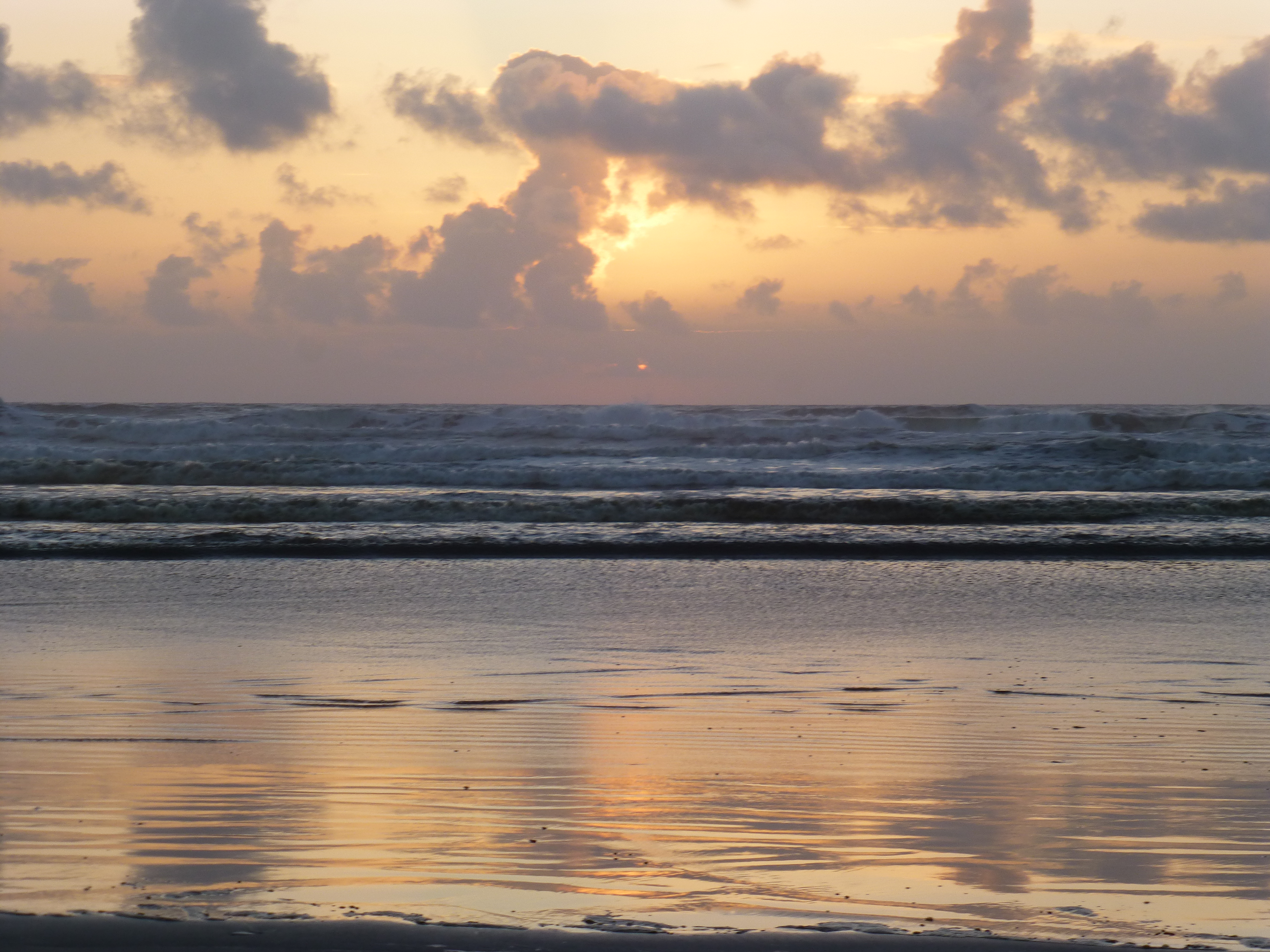


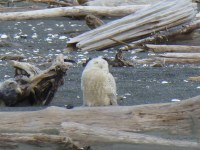
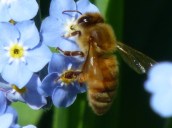










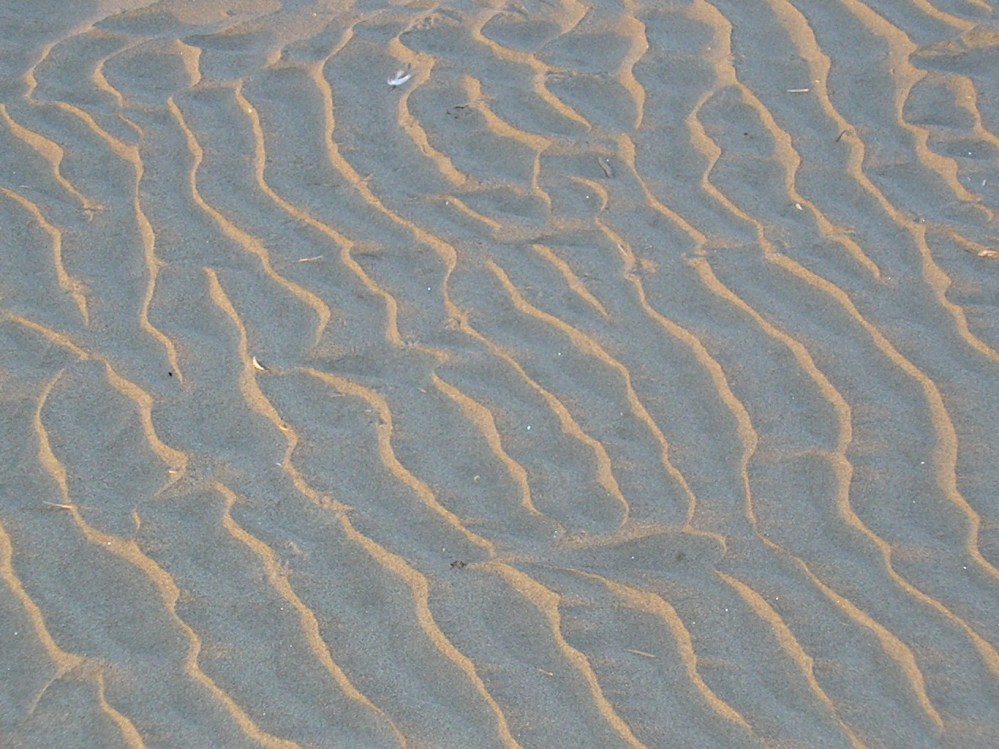

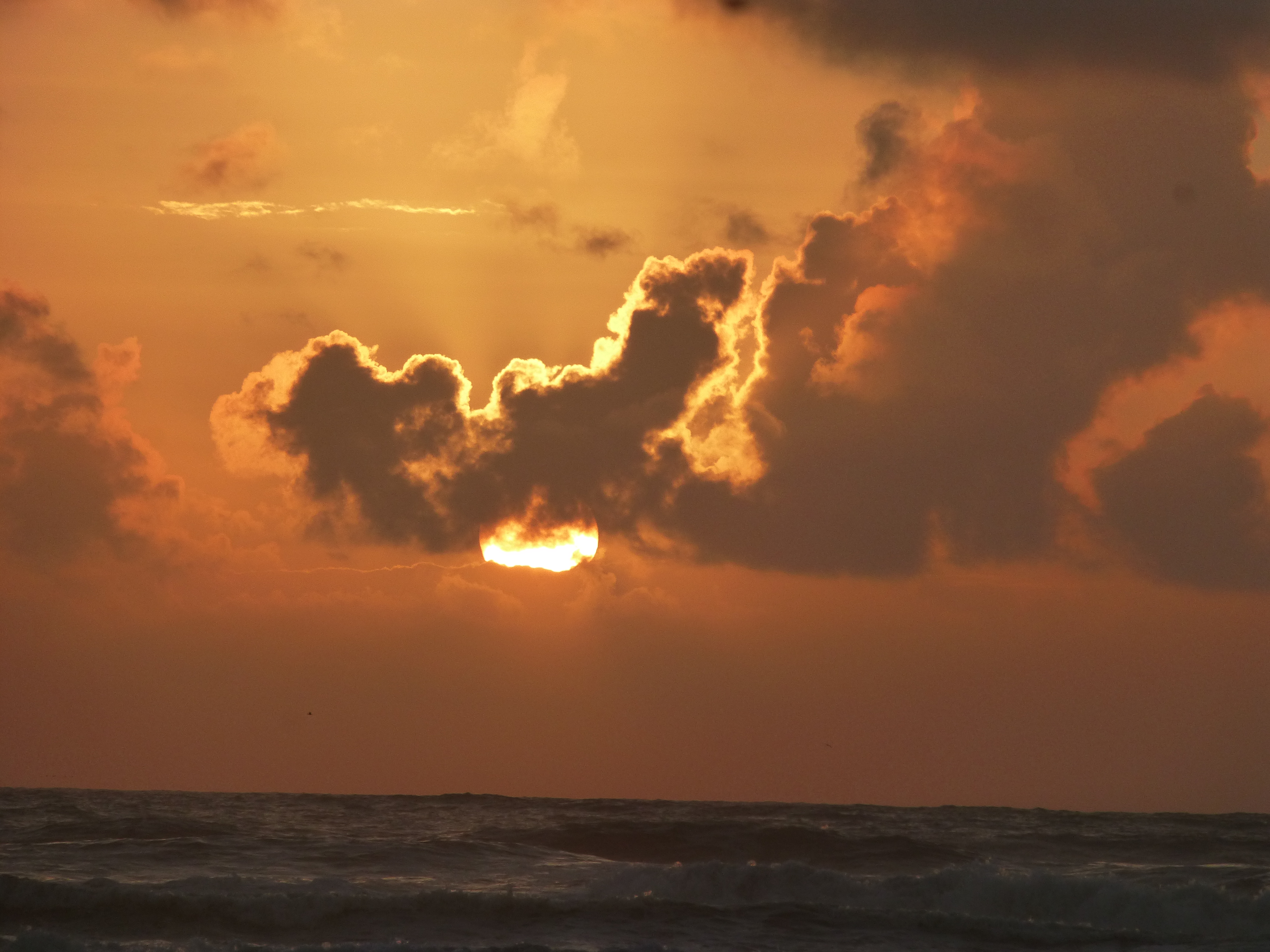
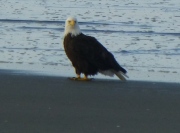



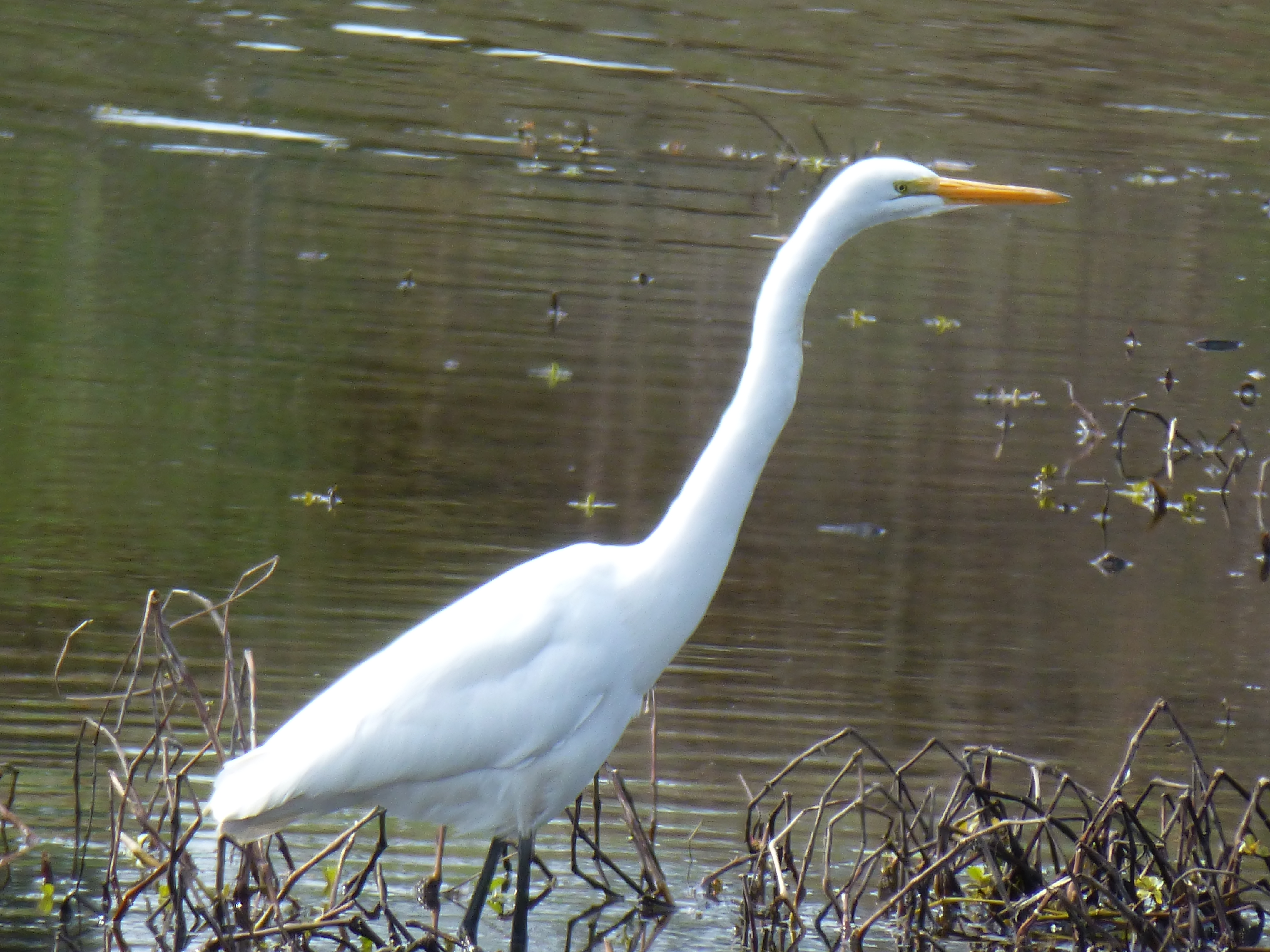








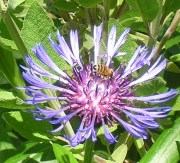
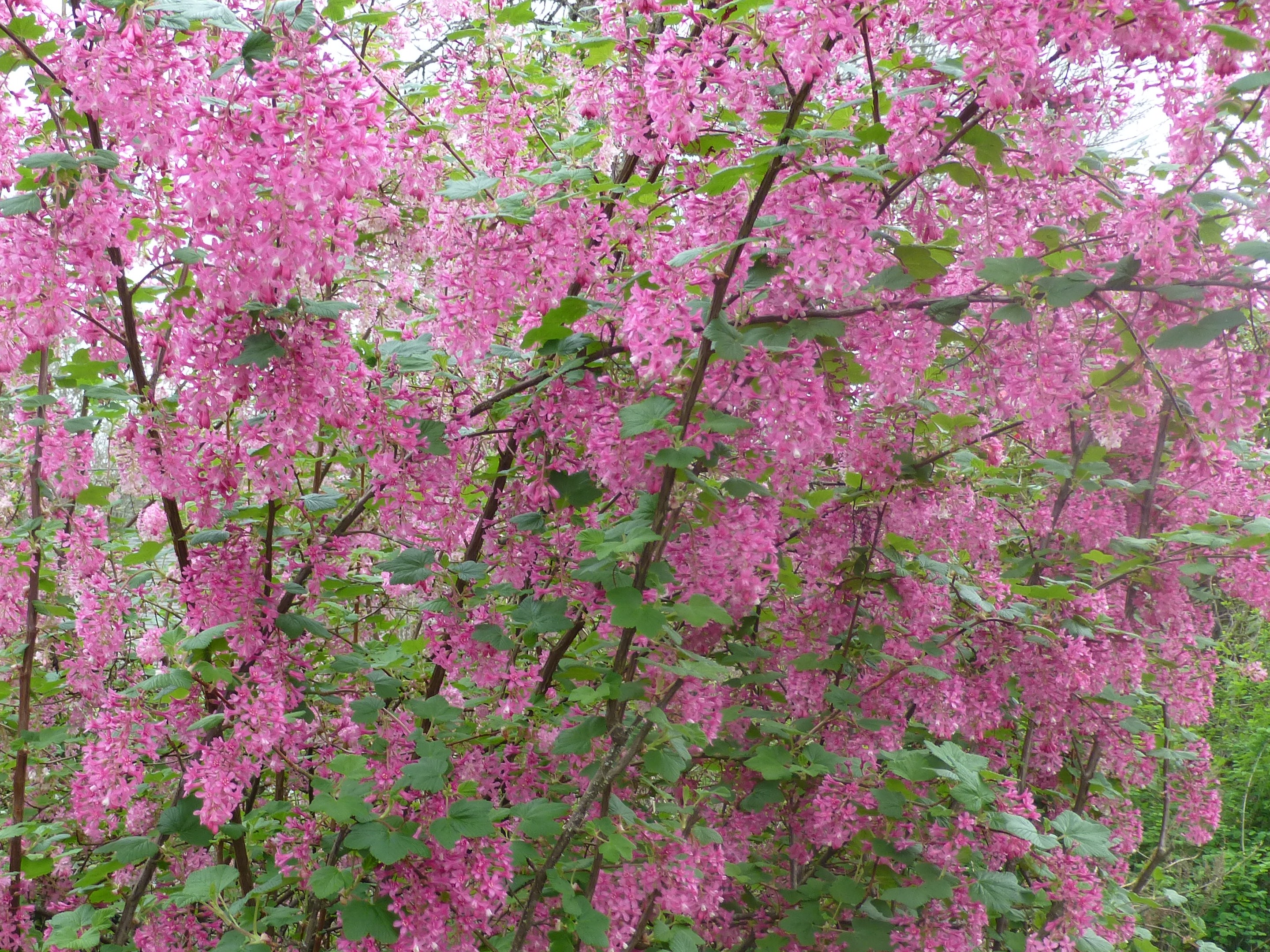
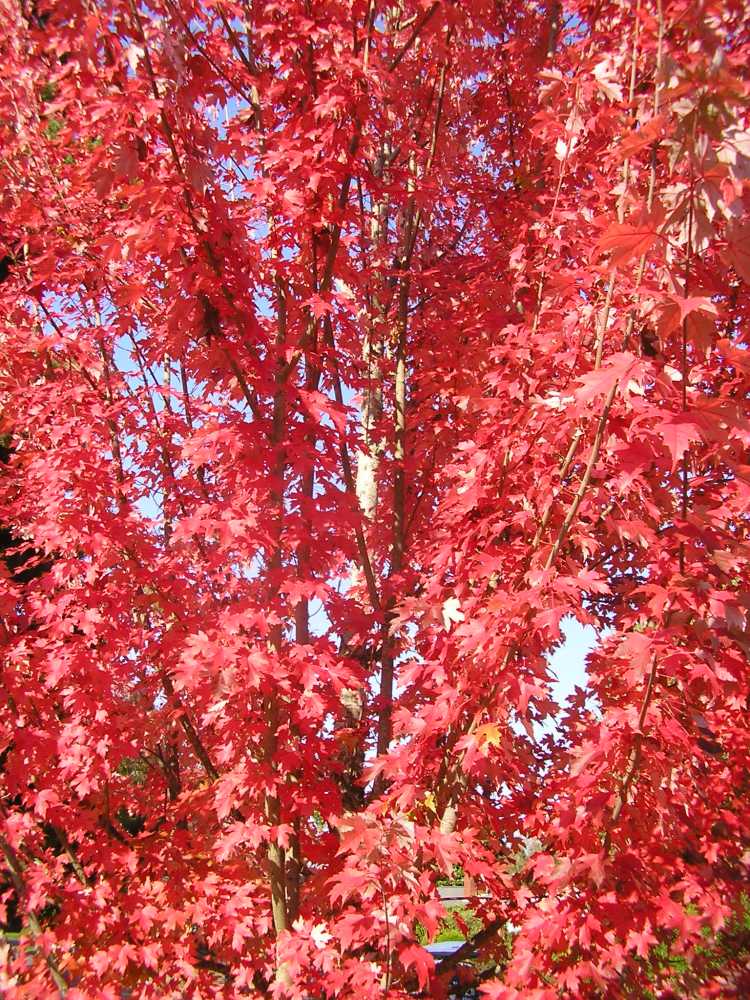

This post is reflects a beautiful way of looking at the world; just what I needed to read at this point. I have always considered myself poor at making decisions, but find guidance when I emerge myself in nature. It could be said that I do this in solitude, but in reality I am never alone. How could we be alone when there is so much life surrounding us? Especially in nature. As you brought up, “the eyes of the world” are looking at us. How much our decisions would be different if we all acted in accordance with a “standard of behavior of which more than human life approved.” I know it is difficult enough for some to consider any person but themselves, so considering non-human life is even more of a stretch. But I do not believe this shortcoming is innate—rather taught or conditioned. So instead, let us let nature teach such lessons. I think we could all be much happier and feel much more connected to everything around us and within us. And when that connection is realized, our thoughts and actions would need to change in harmony with those connections to ensure all of our survival. We come from nature, we live because of it, and we will return to it when we die. Why not make the best of our lives by making the best of the lives surrounding us?
Wonderful to hear from you again, Kirsten! Thanks for the great comment: I loved your last line here especially: “Why not make the best of our lives by making the best of the lives surrounding us?”
It is sad to lose sight of the fact that we are never alone in the natural world– if we only we recognize how filled with life it is. I know that the “eyes of the world” are surely offering you their blessing.
Yes, things have slowed down a little bit in my life so I finally got to read some more of your posts. I enjoy them all. Thank you for sharing.
Glad you seem to be having time for a bit of a summer!
I loved your comment on making the best of our lives. Is this your words or words you quoted?
I really enjoyed reading this article. It is a reminder to me of the sense of spirit that exists amongst the bees. These bees work hard and are in partnership with one another. Each bees has a systematic and organized way of performing their function. Each member of the hive has a special and important job to do so that their objective gets accomplished. They all work for and perform for the queen of the hive. Our lives and are working with name are not much different. Each and every living thing on this planet has a function and has importance. We all need and depend on one another. In the lives of humans, however, we seem to forget that. Those in power forget their dependence on other humans and on our natural world. We have a tendency to take it for granted. We forget about our interconnectedness with each other and all of life on this earth. If we took time to pay more attention to this notion we would be able to sustain life and ensure our survival for the future and for future generations.
Forgetting our dependence on one another and on the natural world is not only a form of blindness and ignorance– but one with decidedly destructive potential for ourselves and those with whom we share this world. We cannot attend to the sources of the world that our lives depend upon if we do not even recognize them.
Thanks for the feedback– and for the reminder of our interconnectedness, Elizabeth.
Elizabeth, I often wonder what would happen if people could learn to interact and work with each other like bees regardless of religion race or color. It is really strange how we have created this reality through religion, to bring people together and to allow for people to share something in common with one another. And it is largely due to the diversity in religions that we cannot recognize that we are interdependent and interrelated with one another as well as to nature; it is because of some sacred texts, scrolls and other writings from thousands of years ago that we cannot get along and fight each other and destroy so many things. Beyond what science has identified as the reason we have these issues and bee’s do not, I want to understand why bees can continue to work together, and can recognize that it is about the greater good, the colony, the hive and they gladly sacrifice themselves in order to protect this. It seems we were more like bees prior to war, and following war, less and less.
I think there are lessons for us to learn from the ways in which ecosystems work together as a whole as well, Lizzy.
I appreciate the notion that “the eyes of the world are looking at us.” Not only does it recognize all the forms of life around us, it also tends to make us aware of responsibility–after all, we tend to be more circumspect in our behavior when we think others are watching us. My parents shared a similar philosophy with me as I got older–that maybe we could lie and fool others (either in action or perceived motivation), but we would still know what we had done, right or wrong, and would have to face ourselves in the mirror afterward–we can’t hide from ourselves for very long. Of course, that meant I had to learn right and wrong first, but they always had a relatively simple method for determining that–essentially, thinking about whether someone (or ‘something’) is harmed by a particular action.
I absolutely love the idea of sharing “stories of a living world that looks back at me even as I look at it”–I can’t imagine a better way to stay (or keep others) engaged in the storytelling experience.
Your parents were obviously wise, Crystal– and you have garnered that wisdom yourself. The standards of ethics that avoids harm to others is a basic standard in many cultures. Keeping ourselves aware of this standard by staying aware of the living quality of the “others” around us is one result of Henry Cultee’s belief–and your personal assent to it. Thanks for your comment!
It’s funny! I thought the same things, our actions are much different when we think others are watching us, especially when we think “the eyes of the world are watching us.”
I agree whole heartedly that people don’t know how much they really do effect this world we live in. Sometimes, the things we do are unchangeable because of our actions and I think this is a great way to look at things and remember that you are responsible for what you do. Always.
Thoughtful point about the idea that our actions always count Crystal and Tayler–and the psychology behind the sense that the world of other lives are always present to and witnessing our actions.
About half way through this article, I thought to myself, I could have written this, wait, did I write this? Honestly, I absolutely am of the same mindset, always have been and never knew how to verbalize it, or label it as some sort of mentality or way of thinking before. I absolutely agree and know in my heart that everything is connected, and we may choose to tune in or not tune into this and therefore see this happening or not see that this is happening everywhere around us. Being more aware of your surroundings allows one to open up and recognize that there are many things deserving of your caring and consideration beyond your immediate loved ones and yourself. It does require a person to open oneself to new things that you may not understand. This class has really opened my eyes to the fact that so many people feel the way I do, and believe in the things I believe in which is uplifting. Breaking out the definition of science and removing this contemporary way of thinking from the thought process when considering everything that is around us and what it really is, what it feels, what it does, how it lives is eye opening as you can start to see the reciprocal relationships that exist between so many different plants and animals.
Thanks for sharing your personal perspective here, Lizzy. I am fortunate to teach so many like minded students–and in my years of teaching and researching these topics I have the sense that the like minded are not only among students– but everywhere. It is hopeful that valued related to this worldview is gaining momentum– as you note, it tells us how we are reciprocally related to the rest of the living world.
As I was reading this essay I remembered being a child picking up rocks. I felt like they were misplaced along my path from school to home. Can’t really explain why i thought these rocks were misplaced but my parents used to find my little pockets full of them. This past summer my father and I were watching my son, Jack, pick up small twigs along a gravel road and when i asked him what he wanted to do with them he told us that they were lonely. My father laughed and told me that i used to give the same answer for the rocks.
I know these are just rocks and twigs but I think we, as children, have a greater sense of belonging with the rest of the world. My son didn’t want to keep the twigs, he just wanted to help them get closer to a tree or bush.
This story reminded me of these youthful feelings. There is a feeling of all-encompassing unity when you stop and take a closer look. We usually take for granted our environment and its miraculous processes of everyday life. I believe it’s this connection with nature that children help us see. Maybe we just forget how to listen as we grow older and become more polluted? I feel that the world is watching us, and probably trying to teach us, which can be witnessed during those moments you see a child experience their surrounding. Children may be are best teachers yet, because they still seem to have the capability to hear what the world is saying.
Sorry I am unable to help you with the red butterfly but i do hope you get another chance to visit with one again.
Thank you for reminding us of the things that the openness of children can teach us, Ryan.
And actually, someone on a butterfly forum responded that it may have been a cinnabar moth– imported to control tansy ragwort. And though I am not aware of tansy anywhere near my neighborhood, it is nice to have a name for my visitor.
I hope we never lose the feeling of intimacy with our world–and the impulse to increase this. Seems like this is what the best poets return us too.
Ryan,
Your story of your childhood and your own son made me smile and think of myself as well. When I was little, I remember my sister and I would watch the “ant lines” in our driveway and if one ant started going out of line, we would direct it back into the line to be with all of the other ants.
I love that children don’t want things or people to feel lonely, or excluded. This goes not only for the games that are played, but also the things around us that make up our natural world. I too hope that this feeling of belonging and togetherness that magically seems to reside in us as children is never lost and lasts for everyone throughout their entire life (not just their childhood).
Children who “don’t want people to feel excluded or lonely”–and include the more than human world in their concerns– have much to teach us. Well we might smile at such a child that still resides in ourselves as well.
I love the concept here in this essay, and in our other class readings about the eyes of the world watching us. I love to think that if we considered this possibility, we might not continue to do things the way we do.
If the factory owners and linemen at a factory farm considered that the cattle were watching them intently as they lined the innocent cows up for torture and slaughter, would they do business the way they do? If they considered the prospect of the animals looking at the linemen and judging the treatment, would factory farming even be an issue? Would people abuse their pets, would we have factory farming, would we have breed dogs because an indulgent, lusty person wants to have a purebred?
(Sidenote: Purebreds can also be called inbreds, for all intensive purposes, which is what got the British monarchy a nice case of hemophilia…just some food for thought if you’re hung up on the having a “pure” English Bulldog, or German Shepherd. Mutts make better dogs in my opinion, and they are much less prone to the health problems so-called purebreds are.)
I have to think if we knew someone was watching our actions, like it is said by “the eyes of the world” watching us, would we continue to treat the creatures of our planet the way we do?
Very thoughtful as well as compassionate response, Crystal. Delightful images of turning the tables on ourselves who too often assume a superiority gaze at other natural life–including those whose lives sustain us with their own.
I think we can respond that we indeed would not act so callously toward the rest of the world if we felt that the “eyes of the world were watching us”– that is the way it worked in Chehalis history.
When I read this I remembered someone telling me a while back that life becomes easier when you view with positive assumptions. Much like making the hypothesis with the bees and the butterfly; by not objectifying them and not putting negative qualities to their actions it makes it a lot easier to choose harmonious actions towards them. We may never know the true intentions of their actions but in the end it’s always best to be at least a little optimistic with the unknown. 🙂
I very much like your point about being “optimistic with the unknown”, Alex. And it is true we will likely never know the intentions of these fellow creatures with absolute certainty– but there is nothing wrong (as you point out) with assuming the best, since it helps us work better within the circle of nature in which we are embedded. Thanks for your comment.
This is a beautiful post, and thanks for sharing about your mother. I agree that we don’t appreciate nature enough. The bee will not hurt you if you don’t try to harm it– but I also believe that it opens up something much more if you think in depth and that is that everyone, EVERY THING, sees the world through a different perspective..even that tiny little bee you saw staring back at you the other day, which also reminds me that you constantly have to change the way you think of things, and thats the beauty of life 🙂
Thank you for a profound insight about changing our perspective, Tayler–as in standing outside of our human and egocentric views. We are larger than this when we see the ways we are embedded in a living world.
I agree with Tayler. It is easy to live your life without thinking about all the ways we change things and affect others. I have two cats and I often wonder what they think about or how they see the world. It may seem strange but I’m curious to think of things from a different perspective. When I was camping last summer I found an ant farm near our tent and was going to cover it with dirt but instead I just sat and watched it for a while. We view ants as tiny, annoying little insects but how do they view us? Just having a different perspective can change the way you interact with nature.
A shift in perspective is a powerful thing, Kat. Thanks for reminding us of this.
HI professor,
I think this is a beautiful essay! I really enjoyed reading it.
You talk about the eyes of the world looking back at us, watching what we do and watching our actions to decide of our short or long survival. This makes me think of the old saying about character that someone once repeated to me when I was little. They said: “character is what you do when no one is watching.” However, there is always “someone” watching, whether it be the eyes of the bee, the eyes of the bird, or the butterfly. When we think no one is watching, we are probably wrong.
Even though with respect to character, it is said that if you know someone is watching, you will be doing the right thing for THEM and not for yourself (so you will look good). I think that if we knew the eyes of the world were always watching, we would do things differently. Even if some people were in fact doing things just to look good, we would still be improving the way we treat the earth and the living things that call it home.
Being aware that the eyes of the earth on us, I believe, would help people to be more respectful and caring about the earth and our actions towards it and it’s inhabitants.
I agree with you. I know personally that i try to be a good person when i think no one is looking, but I know for a fact that not everyone is like that. people seem to need these good impressions from other people and think that is what makes them a good person, that other people think you are a good person. I think what makes you a good person is your every action whether someone is looking or not. The idea of nature always watching you would make people act in different manors towards nature, as proven by these indigenous people who feel this is true. These people have lives for generations sustainably and long lived lives. I think that this idea is a very good thought, and like you said will help people be more respectful and caring towards the earth.
What you are doing when no one (at least no human one) is looking says a lot about personal integrity, I think, Jason. That is a stance we may need to take in order to be truly ethical in a culture in which so much of what we do is private.
And if we feel that the whole world of life witnesses us, we have a different approach to ethical choices.
Thanks, Hana! Great point about always having a witness to our actions– that shows us our choices are always important.
when you talk about how the lower Chehalis people believe that with good relations and actions with the natural world defines how long you live on this earth is a deep connection with nature, however makes sense in any worldview. Using things like pesticides to kill the bee’s that are “harming” you on a daily basis is not only harming the nature but yourself by surrounding yourself with harmful chemicals. By a person harming nature, they are only harming themselves…
I agree with your thoughts on nature looking back at us. It is a hard thought to grasp of insects actually looking at us with curiosity, but just because it is out of my realm of thought does not mean that they dont. the same goes for nature in general. We should be doing all that we can to protect the natural world for it gives us sustenance and life, and by us i mean all living creatures not just humans.
Great point about the pragmatism of links between wise care for the world and our own long term survival, Jason.
As you note, we can hardly go wrong protecting the world that gives us sustenance and life.
There is certain life that only those who pay attention notice and certain creatures that appear for no explainable reason. The stories shared in this essay remind me of something similar that happened this past summer. I love animals, and have always experienced animals to be attracted to me. With this in mind, I’ve always had an amount of pets. I don’t actively seek these creatures, I let them come find me. Lately, my collection has dwindled with the recent passing of my snake. That same week my roommate moved out and my best friends left the country. Needless to say, my life was changing. Within two days of these events, a little stray cat shows up on my door step. I have never seen this cat before, which is surprising because I’ve lived here for awhile and thought I knew all the neighborhood cats. After a week of the cat waiting outside my door, I finally let her inside after giving her a bath and a hearty meal. She is the best cat that I have ever met, and there is just something about the way she looks at me that says she knew I needed a friend. I feel that she found me for a reason; we needed each other. She has a good home, and I have a new friend who is appropriately named Karma Thoreau.
Thanks for sharing this touching story with us, Kara. For me, the issue here is not about epistemology (proving what those who share our world actually think or feel), but about enlarging the quality of own lives in the interchanges with them that are sometimes inexplicable in “logical” terms yet vastly enrich our lives.
This is such a fabulous essay and I really enjoyed reading it. I certainly agree that we should all live our lives as though the “eyes of the world are watching us”, and who knows maybe they are. I believe there is so much mystery in this world and so much that can never be explained. Even a honeybee that seems so simple is actually a very complex little creature that holds its own mystery. I read this essay last night before I went to bed, and as I was falling asleep I had thoughts of your Mother. I was thinking how sometimes when people are older and dying we have the misconception that they are somehow frail and weak. Maybe in body this is true, but in spirit they can be very strong. Strong like the cedar trees that your mother loved so much. Then I started thinking about how much of our strength comes from the things we love and how blessed your mother was by those trees and by the bird who settled in them to watch her. Since one of my favorite hobbies is bird watching I understand what a special gift it is to be in the presence of a bird. So as I drifted off to sleep I thought of the White-tailed Kites that land in the cedar trees near my home. When I woke up this Monday morning I was feeling a little gloomy with the cold weather and starting the workweek after a holiday weekend. As I was getting ready to leave I decided to look out my window and to my amazement sitting on my fence about 15 feet from my window was a beautiful Cooper’s Hawk looking back at me. I watched it for a few minutes before my dog lunged at the window and scared it off, and as I watched it fly away I couldn’t help but feel as though I was going to have a great day. All day long I felt energized thinking about the Cooper’s Hawk and about your essay I read. Was it coincidental that I had this visitor or was it something more? I would like to believe it was something more.
Thank you! I am touched by your response, which brings my mother’s presence back to me in the circle of story.
I like to think that there are no coincidences– only stories waiting to be told. Recognizing that more than human lives have choices of their own means living in a world of gifts– like the gift of the hawk’s choice to sit on your fence.
Birds are amazing creatures– according to Rupert Sheldrake’s book, The Sense of Being Stared At, there is a parrot in New York who has a vocabulary of several thousand words and speaks in full sentences. One of the things this parrot does is when its human companion opens a folder with pictures in it in another room, it (I forget if it is male or female) spontaneously calls out a sentence about the content of the pictures the woman is looking at with a remarkable “hit” rate. (This was done as a controlled experiment).
Who is to say that the lives that share our world do not know what is in our hearts–as they bring us the gift of joy that that Cooper’s Hawk brought you?
Definitely an inspiring way to enjoy and appreciate the world. Your mother’s story is a very personal and touching way to illustrate, with a real life painting this picture, how important the concept of longevity is – the continuance of a life, whether or not our physical body is still present. I wish more people in the world had been touched by someone like your mother – someone who could show them firsthand that our *lives* and actions while we inhabit our physical bodies will have an amazing legacy as long as we make meaningful connections with the living beings (as in this example, the trees) around us. It also reminds me of the hopelessness I’ve witnessed in others, when they forget that their lives touch all other lives, and that even when they’re gone, what they have done during their time here will have a long lasting impact – negative or positive.
Thank you for your response, Lauren. Words cannot say how blessed I feel by my mother’s presence in my life.
There are many, many exceptional mothers that have offered powerful nurturing to their children that is the grounding behind their strength and perception– and compassion. It is a gift to be so thoroughly loved by one who reveres the gift of life.
My own mother had a mother who was exemplary in her power and her nurturance, so this dynamic is one of legacy indeed: we can never over estimate the importance of the seeds of care we give to those in upcoming generations– whether they are our physical daughters and sons or not.
My grandmother loved spiders if i can rememberer anything from her its her reminding my mom not to kill the spiders that are around her house, and how my grandmother would say its bad luck to kill them. My uncle later explained to me that i was not about how much she liked spiders but how thankful she was for the spiders for keeping all the bad bugs out of her house and catching the “nasty” flys that carry disease. being that she is from a poor town where most of the houses were made out sticks and mud this all started to make sense to me.
There are many indigenous traditions that honor spiders, Arnulfo. As you note, this has pragmatic results in the ways the spiders helped clean your house of flies. Thanks for sharing this.
I have a ‘love’ of spiders similar to your Grandmothers; I would never kill a spider and will go far out of my way to protect them. It has taken a year and a half, but I’ve almost convinced the man I live with to relocate them if necessary rather than kill them; I remind him to appreciate the work the spiders do in the house to rid of us bugs- and living at the beach we have many bugs!
Also, I find it interesting, we both have very different thoughts and actions towards spiders; through respect, I never get bitten and he has always been bitten; the same holds true for some friends that insist on killing them- they are the people complaining of spider bites. It’s the ‘eyes of the world watching’ and sending reminders to those that need a wake up call!
Interesting instance of reciprocity, Rory. Science cannot tell us why these folks are getting bitten; but at the very least, they are certainly paying attention to these creatures in very different ways than you are.
It is so humbling when another creature honors one with its gaze. I have looked into the eyes of many a fellow creature, wondering what wisdom was there that I had no hope of learning. At least we can hope to go through life still trying to learn those lessons and fathom those truths. Curious about the red butterfly–did you ever find out the species? You could say now that you have experienced the butterfly effect!
Thanks for the comment, Reb. I love your statement about the gift of looking into another’s eyes. II did find out that the red butterfly was one that feeds on tansy– imported to try to control it. Though I don’t know of any tansy within blocks of my house, I appreciate its gorgeous appearance. I will have to add this info to this post.
I agree with you Rebecca, I think there are many lessons we can learn animals and Earth’s Others. As we gain insight from them, I think we can also gain a better understanding of ourselves as well.
I agree with you as well, Leah. There are many ways in which earth’s others can teach us to be fully human.
I agree with you about looking into the eyes of another creature. It may sound cheesy but there are moments my little puppy and I will look right at one another and you can honestly just feel that bond and friendship.
Delightful!
This circle of life and the signals that nature sends us seems to have found me a number of times. Whether its coincidence or fate during the last 20 years when someone close to me has past I have had a corresponding encounter with an oceanic death in major proportions. This first happened when my father passed many years ago. I few days after his death I was walking the beach surf fishing when I came across the largest sturgeon I had ever encountered. I was at least 8 feet long and washed up dead on the shore. It was magnificent, and I could only have imagined what it might have looked like swimming down the Hudson River past New York City. Again when I was in my early 30’s my grandfather past away. This time a few days prior to the news of his death I was on a beach in Southwest Florida when I came across a giant leather back turtle washed ashore. It was a good 6 foot long and several hundred pounds. It was truly amazing. Then most recently, 3 years ago, my wife’s sister was battling cancer and fighting for her life when the last sign came. I was on my way home from work when I saw a number of cars parked along the ocean sea wall. I decided to stop and get out. When I got on the beach there was a 22 foot humpback whale. It was dead and had been hit by a large vessel in the shipping lanes. As I walked of the beach I had a strange feeling…two days later her sister past. Strange. Perhaps I go to the beach too much, or perhaps it’s something more.
This is your story and you get to tell it any way you want, David. And the way you tell it here gives it a great deal of power for the reader. I very much like your idea that there is some echo in the circle of life between the deaths of those we love and the living treasures of the natural world. I think the world is more mysterious and enmeshed then we know–and sometimes when we stand very close to the horizon between life and death, it shows us this.
Just yesterday morning, I was at my friend’s parent’s house playing with their cat “Rexy”. Around 11am, their neighbor’s cat “Frosty” showed up at the front porch to visit “Rexy.” My friend, his parents, and I watched them playing under the sun until they decided that they are going to go on a mouse hunt.
Little stories like this amaze me- this is because often times I forget that I also belong to animal kingdom as well. Nothing unique about animals in the same animal kingdom acting in similar way, but because I forget that I also am a part of nature, observing these kind of animal behavior are very interesting. May be someday I will be able to be free of my assumption that I am not an animal!
Delightful observation of the cats and self-observation as well, YunJi. And even if we remember that we are a part of the animal kingdom, I would still like to amazed at “little stories like this”.
I found this essay coincidental, in regards to the butterfly story. This is because; I was told of a similar incident just two weeks ago. My boyfriend’s favorite Aunt loved butterflies and had a huge butterfly tattoo on her back (of a beautiful blue butterfly with spots). His Aunt died over three years ago, just before his daughter was born. Well two weeks ago, my boyfriend picks his daughter up from pre-school, and she tells him the butterfly came and visited her at school today, and that she talked to it. He asked her what kind of butterfly, and she describes the exact one that was tattooed on his Aunt’s back.
What a lovely story and bit of synchronicity here, Leah. Thank you for sharing it. It would be fortunate if we all remained as open to our world as this child is!
I found this story very touching.
That is crazy it just goes to show how we are all connected. Also it brings up a point of immortality that your boyfriends aunt might have been reincarnated as the beautiful butterfly she loved so much.
Interesting personal response, Jake.
I really loved this story. I think it is really special that for many of us our closest stories about ourselves and those we know are shown best through interactions with the less touched parts of nature. I think there is something mystical about the fact that we seem to connect with our past generations in unusual ways through nature. My mom now can’t go hiking without thinking of her father. A year after my grandad died my mom went on a week long hike and being a person who loves her job (physician assistant) she turned on her phone when on top of a mountain to see if a patient had called who wasn’t doing well when she left. When going through her messages she was told she had to looked at her old skipped messages, one being from her deceased father back when he was alive saying he had just called to say he loved her. I think this experience would have been less imprinting for my mom if it hadn’t been connected with the majesty of the environment.
On a funny side note I have a connection with butterflies because when I was young my mom gave me a kit where you watch caterpillars turn into butterflies. When mine turned into butterflies I wanted to release them right away into the wild. The second butterfly I released soared high into the air and a bird swooped down and carried it off. Not quite as romantic a view of nature but a lesson as well! (yes, I know a bit random but I couldn’t help myself!)
Thank you, Caroline. Wonderful story about the message waiting for your mom from her dad: it is my sense that we can never tell those we love that we love them too often, as this lovely case indicates. Powerful point about the ways in which the natural environment can strengthen our relationships with one another.
And thanks for the reminder that romanticizing nature is not the same thing as being truly intimate with it.
“I think there is something mystical about the fact that we seem to connect with our past generations in unusual ways through nature.”
I could not agree more.
There are certain locations that always remind me of a close friend that passed and just being in that environment makes you feel love and peace. And i’m sure that moment was one your mother will always cherish 🙂
The more we share such personal stories, Chamae and Caroline, the more we find that they seem to be a persistent part of the human condition– if a part that sometimes goes underground in a culture such as our own.
I think you are right in that having a connection with the outdoors helps people to experience emotions on a deeper level. Sometimes people notice things or are inspired simply by being outside. I don’t know why we are wired like that, but maybe it brings us a sense of belonging and connectedness we are missing in our lives.
Since we grew up as human in natural environments, I think this is a large part of the reason we are “wired” that way.
I could not agree more! When I am feeling lost or out of sorts, it always helps me to take a brief respite in the outside by myself. It seems that when I am alone with my thoughts in the woods, I can come to terms with life.
How long do you suppose it will be that humans will continue to be wired to connect with the outdoors? Are we truly made that way or is it something learned? I know that I have always felt deeply connected to the outside, but I have seen some youngsters who have never spent time in the woods and who are extremely uncomfortable with life. Imagine a life where one is scared of a tree and the life that surrounds it. What kind of life would that be?
I would like to imagine a very different vision, Raquel– one in which nature is still a refuge for us to heal that feeling of “lostness” as you speak of it here.
Thanks for your comment.
A truly genuine article, Madronna. I’m happy for you, that you were able to see a butterfly that looked so similar to your mother’s pin. Moments such as those are to be cherished and i’m very happy that you saw it in that light. The fact that your parents felt so strongly for those particular trees and never let go of those connections is a very powerful thing as well. Thanks for sharing that with all of us.
Thank you for being such a kind audience to this personal story, Chamae!
Prospective is one of the hardest things to remember because people usually only see things through their own eyes and put not effort what so ever to put themselves in other peoples shoes. I try to think about prospective all the time because even when someone does something that seems outlandish and crazy I put myself in there shoes and it starts to make a little more sense. The story was great by the way.
Thanks, Jake. Perspective is something to remember–not only because it tells how to know what others are feelings– but because it allows us to expand our own consciousness.
perspective is not only useful in peoples interactions but in our interactions with animals as well. i remember when i was a little kid and would pick up a caterpillar, i would feel bad for it later because what if it had been on its way somewhere and i completely interrupted it and moved it far away? thinking in the way other creatures might think or see things makes every day just a little more interesting i think
I like your own perspective here, Kellie.
To view nature as looking back at you is a very good way of keeping the human race accountable for their actions. Being a Christian the means in which I go about this is different but the ends are the same. In the end we will be judged by what we did with the gift given to us and if we worked with it and caused it to flourish or if we just used it for our own selfish gain. This is a great perspective to have.
Thoughtful perspective: thanks for indicating a bridge between these two ways of holding humans to their responsibility, Kyle.
I like the idea that all of the world’s eyes are watching us, but I like to think of me watching back. This is because I don’t like to think of my movements on this planet as those that ignore the eyes watching me. For instance, when I garden I feel that I am being paid attention to, just as I am being mindful of what is around me. Last week I didn’t pay attention, and I accidentally disturbed an ants nest because I was more inside my head then in my body. Just yesterday I checked the Salal that I had recently planted nearby and of course there were chewed parts of the leaves from the ants that weren’t there before. If I had of been paying attention I would have surely seen them! I think it’s hard for people to live as if they were being watched by all of the natural world because if they aren’t living by the worldview of reciprocity then they might experience guilt. This sometimes causes an immature and bullish reaction in a person who feels judged and doesn’t want to change because of inconvenience or stubbornness of it could make someone think that their actions won’t matter. It’s hard because people judge each other too. My neighbor has never used pesticides or any other chemicals on her property because of her young kids. However, she said recently her and her husband gave in because of perceived or real peer pressure from the neighborhood about taking care of their front yard near their mailbox. Then she said she felt so bad because the local duck couple that hangs out on our street kept plopping down to rest right where she had sprayed! She felt she couldn’t win. I’m pretty sure she felt guilty enough from the perception of natures eyes watching her to not spray again!
Thanks for bringing up the pertinent idea of reciprocity here, Stephanie. Partnership with the natural world entails this kind of mutual witness and attention. It is a complement to both you and your neighbor that you are attentive to the other lives that share our world– so that you are willing to treat them with compassion. “Do no harm” is the first principle of many ethical systems– holding to this ideal would certainly prevent the passing off of risks to others for the sake of our short term profit (or convenience).
I am sorry that your neighbor was pressured into what she felt as a “no win” situation. I am sure you gave here some support.
We have been taught that it’s wrong to anthropomorphize animals; however, assuming all animals to simply be living by instinct to survive robs them of their wholeness. I spend a great amount of time in the company of animals; I witness their intelligence, empathy, caring and curiosity; I imagine, bees could be quite capable of these traits too. I’m sad for those that do not recognize that non-human beings have these capabilities.
After the earthquake that struck Japan in March of 2011, the news from the region aired a piece on an injured dog; the dog had been injured in the earthquake and a second dog would not leave its side. The beauty in the story was showing the world that dogs have empathy that’s beyond simple instinctual survival; this dog showed true companionship and compassion.
As well, the mice from ‘The Mice in the Sink – and Us’ are another example of this wholeness without anthropomorphizing animals; the stronger of the mice strategically placed the meat closer and closer to the water to lure the weaker mouse in an effort to get him to drink. The caring and compassion exhibited by the mouse leads me to believe that this is not an anthropomorphic designation, but truly these animals are simply empathetic and compassionate beings.
The “eyes of the world are looking at us” and they are looking at us with empathetic and compassionate eyes; let’s hope that we can all learn to recognize this and do the same in return.
I think that when it comes to appreciating the consciousness of non-human animals science is seriously lacking, not because of their efforts but because of how science is set up. I think that taking a scientific approach that has to ignore personality (such as joking, boredom and lying) can’t show consciousness. I strongly suspect that if we turned that scientific lens to ourselves we would have many (if not all) of the same issues with proving (beyond a shadow of a doubt) consciousness.
Fascinating idea about consciousness (or self-reflexive awareness?) being signed by humor, boredom or lying, Caroline.
I agree that there is a problem with understanding other lives when we begin with the assumptions (as at least some science does) that we should attain knowledge throughout dissecting the world with ourselves as the only truly conscious observers.
I very much like your idea of turning such a lens on ourselves: this reflects the ethical standard of reciprocity and/or compassion that prevails in so many human cultures and religions.
Thoughtful point, Rory. I think there is a difference between looking at all animals by a human standard (for better or worse) and looking at them as if they are “persons” (as in the indigenous Northwest) or their own way of seeing the world (as among the Chewong)- or as the Dalai Lama puts it, are “sentient beings”.
As you point out, such more than human lives have something to teach us about the capacity for empathy, care and connection.
Thanks for sharing those stories! It is truly amazing that humans believe that we are the only beings capable of emotions. One only has to look at the world around us to see that other animals are just as capable of feeling empathy, irritation, and joy. My cat gets very irritated if he wants outside and I’m not letting him out and he sits down in front of me and “talks” to me about it! I wonder if it’s just from a lack of observation and it takes extraordinary events like you mentioned for us to realize that animals can have emotions too!
Your cat would obviously have something to say about this– if only we could speak his language. =)
This story was very personal and touching and I thank you for sharing it with me. What I get from this story is your understanding that the way we live our life impacts all those around us and there are some things in life that are too important to bend to even if it would be easy to do so. The gift you received from keeping to your pesticide free garden was the sighting of a butterfly that matched your mother’s pin- which must have been a touching and a reminder that you are following the right path. Thankyou.
Thank you for your generous response, Raquel. I hadn’t thought of the butterfly sighting in these terms, but I like this perspective!
the way the elders describe how the world is watching us just as we are watching the world reminds me of the disney movie Ants. Although silly and meant for children, it is interesting to view the world through an insects eyes and try to put yourself in their world instead of our own egocentric view.
It is interesting, Kellie- now if we might only connect this stance not only to compassion but to responsibility. And perhaps the way in which such movies are conceived indicates a certain intuition about the empathy children still feel with those creatures very different from themselves.
Great story. I have always been amazed in putting my self in others shoes, and seeing the world from different perspectives. I especially enjoy doing this with other people in the form of people watching and/or trying to imagine what others are thinking, but this article inspired me to try to apply this “art” to other forms of life like my roommates ferret, the bluebird outside this morning, and the cats that live in my neighborhood. Just sitting outside, watching, and imagining what these animals were feeling was refreshing.
Delightful response, Caleb. I think much creativity can flow from such a response.
The story of the bee on the fig looking back at you reminds me of the connection I have with my dog and cat. They will sit and just stare into my eyes, almost like they can see right into my mind and what I am thinking; then like clockwork they always end up moving closer to cuddle with me. I believe this eye to eye connection is bringing us closer as species; we are making a connection without any needed words or similarities.
Animals have a completely different view of nature than we do. They do not know how to exploit its resources, they only know how to give back and sustain it. And that is why they have been able to stay around for billions of years.
And we can only hope we might learn something from the tactics that have suited our fellow creatures so well–and led to their own longevity on earth! Thanks for your comment, Cyria. I don’t think I would quite equate my cat with the bee, but one never knows what is going on inside their minds when they just carefully watch me as I am doing something with the hive. If I weren’t afraid of anthropomorphizing, I would say some of them seem genuinely curious.
The butterflies remind of the Dia de los Muertos celebrations where the insects are often seen as souls from the afterlife. Your yard seems like a safe haven for those souls.
Getting down and being able to see, and truly look at things is an amazing experience, and I do believe that the eyes of the world, the animals, and the plants know.
What a lovely response, Lindzy, Thank you! There is for me a profound sense of well being to see the wings of insects glowing in the sunlight as they move in clouds around my flowers: perhaps if we thought of them as the souls of the dead, we would be less like to poison them–and ourselves in the process.
It’s good that your mother insisted on keeping those cedar trees, I’m sure that that house wouldn’t be the same without them. It’s definitely much prettier and attracts wildlife, and if nothing else, probably increases property value. The world is much more intricate and complicated than we know. For all we know, those bees are curious and that bird came for a higher reason. There is definitely something nice to being able to have mystery in our lives.
I feel grateful both for the inheritance of the trees and the stories with their mystery–and the way they bring all life together, Ben. Thanks for your comment.
In perhaps 20 years, it will certainly be a crime to take down such trees with their carbon storage.
After reading this essay, I thought to myself that it is definitely true that the world is looking down at mankind. Mankind has made itself an enemy to nature through mankind’s destructive ways, such as the promoting of global warming. I have seen how animals in the wild fear humans by running away and hiding because they know that humans can be destructive. By viewing humans like this, most animals in the wild believe that humans are the enemy. Mankind should be ashamed of what we did to this world, but it seems that pride and greediness has corrupted the human mind. Most of us don’t want to make the effort to change our ways.
You offer something to ponder here, Maileen– what it does to us and to our world when we make ourselves an “enemy of life”.
I agree with you that humans have disassociated themselves with wild animals through pride and greediness. Because humans have made themselves enemies of animals, the animals of the wild now fear humans. I can only imagine that humans, who live in harmony with animals, can communicate and associate with them effectively. A few times in the wilderness around campgrounds I’ve had wild deer walk almost close enough to eat out of my hand. I imagine animals where more friendly towards people in this sort of way, before our pride and greed made us their enemy.
I completely agree with your thought that the world is looking down on mankind. I feel that we, as humans, have given our planet more grief and problems than any other form of flora or fauna. I too feel that we should feel ashamed of the actions that we have taken towards our mother earth and need to quickly find a way to remedy this.
Its true that humans have made themselves the enemy to nature. Even in Biology and Ecology classes we learn that when European Settlers arrived to new lands they would decimate the local fauna population because they were not afraid of the humans. It sad that we have done this.
It is sad, Nathan– I think that it is overdue for us to begin to learn from our history.
The story about your mother who lived to protect her piece of land is touching. Also the way which she regarded and respected the cedar trees is powerful. The red butterfly that was identified as a pin she owned is just awesome. It’s like the nature around her house respected her as she respected it. I do also believe that nature has its own worldview. Just like electricity we cannot see it but it is definitely there. There is reciprocal energy in this world that can bless us if we treat it with respect. Like the respect that was shown to the cedar trees which resulted in a diversity of species on her property. There is a lack of respect when we destroy whole species and ecosystems. Such as using pesticides, it is plain ignorance. I believe every species is important and here on earth for a good reason. The worldview of the western world does not regard species to have their own worldviews. Until it does the western world will never live in harmony with species like your mother who respected her cedar trees.
Hi Zach, thank your for your own touching response. I like your analogy about electricity; there is a good deal we do not know about our world– and by assuming we do, we lose much of our presence and experience in the world–since we fail to attend to those things that don’t fit into our mindset.
I think you are very right about the perspectives of other species–and until we learn to respect these, we will never, as you note, live in full partnership with our world.
The essay is very touching, the feeling is mutual on how other species being silent with just their stare say a lot. Nature has its mysterious ways. I guess that is one of the reasons a lot of fairytales and stories of our ancestors mention forests, hillsides, lakes, rivers, animals, nature in general as enchanted. I too have felt something similar to what you felt with the bee. Once when I was riding my bike on a bike trail I came across buck. I used to be quiet frequent in my bike routine and I knew the species that were frequent to those areas and this buck wasn’t. When I saw it, I stopped my bike to stare at it. It too stopped for few seconds stared back at me then continued eating as if it knew we both have to share this land. It felt as if the buck knew that this area belongs to both of us.
Our cultural belief, mainly a fusion of Hinduism and the native Fijian ways of life shows that the good deeds we do is what reincarnates us and we can take animal forms. Another belief is that certain species of trees are used to tie threads around it, where the threads represent lives and the trees are Nobel sole/spirits that guards those threads of life.
Thank you for this essay. I have a Yucca plant in my front yard. It grows stalks that look like gigantic asparagus spears in the spring, when they open the tops are filled with white flowers. The first year I lived here there were 2 stalks. Before they could bloom someone had broken them off. I completely overreacted and was so angry. The next year 4 stalks came. I made a sign asking people not to touch the stalks, still 2 were broken. The plant keeps spreading and after 8 years here I now have 8 stalks. My neighbor told me that the plant never grew those flowers before I came. I think it did, but for some reason people couldn’t resist breaking off those spear like stalks. I feel like the plant felt my compassion for it and just keeps giving me the gift of more and more of those gigantic flowering stalks. And no one breaks them off anymore, probably because they now now that those spears morph into something beautiful. The world looking back at me is a beautiful concept, I only hope it likes what it sees.
Yucca plants are pretty amazing, Erin. Interesting how that plant bloomed for you– for whatever reason. Now there is a lesson for us: blooming more and more (even if we are broken by circumstance) for the sake of those who care about us.
I love your last sentence!
I have seen log cabins which have incorporated trees as posts. However they have been debarked and varnished. I think it would be really awesome if they would learn to build the cabins so that they could live the trees alive and incorporate them into the cabins. I also believe animals have some sort of consciousness about themselves and the world around them. With bees they make honey and can go out and collect nectar and return back to their hive. If they can navigate back home then they must have some sort of thoughts about other things other than collecting nectar and defending the hive. And then again maybe they are mindless drones. But no one can be for certain if they are mindless or not. So no one should treat them as a lower life form.
There is some modern as well as ancient architecture that incorporates living trees, Nathan. I can only imagine how beautiful this might make a building- of course, then it would also have the ability to be alive and respond to changes in living things.
No, we don’t know what a bee thinks– but as you point out, that is no reason to presume that thinking falls into the lowest common denominator.
This Summer I had a huge spider building the largest web I have ever seen on the Southwest corner of our house. Instantly I was terrified but my interest overcame my fears. This spider was beautiful, it had patches of gold along its abdomen with a large white carapace, 8 long legs that started as brown from the abdomen but changed to black. After a little research I determined this to be a Writing Spider, named by the zig zag that they write into their webs. Everyday I watched this spider, and every morning her webs were more elaborate than the day before. Although I could not see her eyes I wonder if she is watching me like I am watching her. It was her beauty that helped me overcome my fear.
This morning I was walking out to my car and at first the air was silent; but then a bird began to sing; I thought to myself..I wonder if she is saying good morning. I turned and smiled at a beautiful yellowish bird pirched on my thorny rose bushes.
I like to think of myself as a person connected to all things around me; but it’s days like this morning that I realize I often miss the best parts offered by this world. The haze we wonder through life in to make ends meet or gather success under our belts is saddening, especially when we do wake up and enjoy what’s really the best part.
Such joy exists in that “waking up”!
I really like the image of the bees helping each other. I have not heard of this behavior of insects before and I am glad to add this story to my understanding of the natural world. This spring, I have been greatly enjoying the squirrels who frequent my yard. There seem to be a few of them who live here and while I would never approach one directly, in my daily rounds I get fairly close to them. I like to think they know that I mean them no harm. As much as I can, I try to make my yard inviting to wildlife. There is shade and water and a diversity of green plants growing. I much prefer this to a manicured lawn! I am happy to provide this habitat for the squirrels and birds who enrich my life as I watch them go about their lives. It does feel reciprocal to me. And sometimes, those squirrels seem to just stop and watch me so intently- “looking back at me even as I look at it.”
Peace, Jen
I had not heard anyone mention how bees might help one another either, Jen. But I saw it as I sat there watching my hive.
I am glad you are enjoying the squirrels. I’m afraid I don’t have such a generous attitude toward them myself, since we have a burgeoning over-population (since we have driven off their predators) of non-native red squirrels in Eugene that are fed by those who find them cute. And though they do have their antics, I really think we should stop feeding them, as they are stripping fruit and nut trees of their fruit without even consuming it. They also have a habit of girdling maple trees by gnawing on them and causing large limbs to die and fall as a result– pretty dangerous. Indeed, as rodents, they will chew on anything handy to keep their teeth filed down– including not only these limbs, but roofs.
I have seen one of these characters denude virtually an entire huge tree of unripe fruit, pulling off one piece of fruit, taking a bite and throwing it down until there was nothing left. Feeding them encourages over-populations that are not dealt with as native oak trees used to do. By bearing heavily once every several years, the oaks ensured the squirrel population was in check in the heavy year when the trees needed some acorns to get past the squirrels for reproduction. But by feeding them continually, we are creating some ravenous critters without any natural checks and balances.
The native and more rare grey squirrels don’t seem nearly so problematic to me.
Yikes! Well, I don’t actually feed the squirrels on purpose, just don’t have dogs or anything that chase them off. I would have thought that the squirrels I see around my house are grey- but I will make sure to pay attention. Thanks for letting me know about this issue!
Peace, Jen
Sorry if it seemed like I thought YOU were feeding the squirrels. I just know many of my neighbors are– and couldn’t resist passing on the info. I don’t have any dogs either.
I really like the idea that the world is looking back at us. I also agree that science should be telling us “how to express our human potential through intimacy with the more than human world.” Animals are often a great example of how we should act, in the bee example the hive goes to aid their struggling friend, if we all showed compassion in this way that would be fantastic! I think it is important to remember that we can learn from even the smallest of creatures.
Lovely points, Maddy. Thanks for the affirmations here. I can only imagine what our world might look like if we all acted on such values.
I am always looking for examples of empathy in the animal world. Therefore, I was thrilled to read about two different bees helping another bee into the hive.
I was also pleased to read about the little white bird who visited the tree when your mother was ill. First your mother gave the gift of continued life to the trees, then the bird in one of the trees gave your mother the gift of delight, and now you have given us the gift of joy by telling us this story. Thank you for your gift.
Someone, perhaps herself, gave your mother a gift of the red butterfly pin. Later, you received the gift of seeing a live red butterfly, and now you have given us one more gift of another lovely story. Again, thanks for your trio of gifts.
I was pretty amazed to see this on the part of my bees! You are welcome for your kind reply: I feel that the gift was mine, through the spirit of my mother. How blessed I am!
The memory you have of your mother is beautiful it made me tear up. In a short essay you were able to make your mothers inner beauty be known.
I just recently had a interesting experience with a fly that can into my house. (I leave the front door wide open most of the day) When it was getting too chilly i closed it and noticed there was a fly, but there was really no way i could safely take it out. So I cooked my dinner and the fly followed me. I feel like he/she was observing me. I remember sitting down and seeing the fly just fly around me. Then after eating i looked straight at the fly and told him/her you will die if you stay in here someone will try and kill you. The fly was flying above me I got up and opened the door, and it was like she/he flew out no problem. I had tried earlier to get her/him out by opening the door but the fly would not get out. It may sound weird but I feel that the fly understood that I had its best interest in mind and understood me. It was a amazing experience.
Thank you for you kind response, Laura. Interesting incident with the fly– I think creatures of all species are entirely more mysterious and capable of intentional action– than we often give them credit for.